How to Teach Your Child Empathy to Prevent Bullying
4 February 2025
As parents, one of the most important lessons we can teach our children isn’t found in textbooks or classrooms. It’s empathy—the ability to understand and share the feelings of others. Why is this so crucial? Well, empathy lays the foundation for kindness, compassion, and, ultimately, preventing harmful behaviors like bullying.
But here’s the thing: empathy isn’t something kids just wake up with one day. Like learning to walk or ride a bike, it’s a skill. And like any skill, it must be nurtured, practiced, and modeled by us—their parents.
Ready to dive in? Let’s talk about how you can teach your child empathy and, in doing so, help create a kinder, more inclusive world. Parenting can feel like a juggling act, but trust me, teaching empathy doesn’t have to be rocket science.
Why Empathy Matters
First, let’s answer the big question: Why does empathy matter?Empathy isn’t just about being nice—it’s about truly connecting with others on a deeper level. When kids learn to step into someone else’s shoes, they’re less likely to engage in mean-spirited or hurtful behavior, like bullying.
Think about it. If your child can understand how hurtful words or actions make someone feel, chances are they’ll hesitate before inflicting that pain. Empathy creates a kind of natural pause button—one that prompts kids to consider others’ feelings before acting.
Plus, empathy isn’t just about stopping bad behavior. It’s also the secret sauce for building meaningful friendships, fostering stronger communities, and helping kids grow into emotionally intelligent adults. 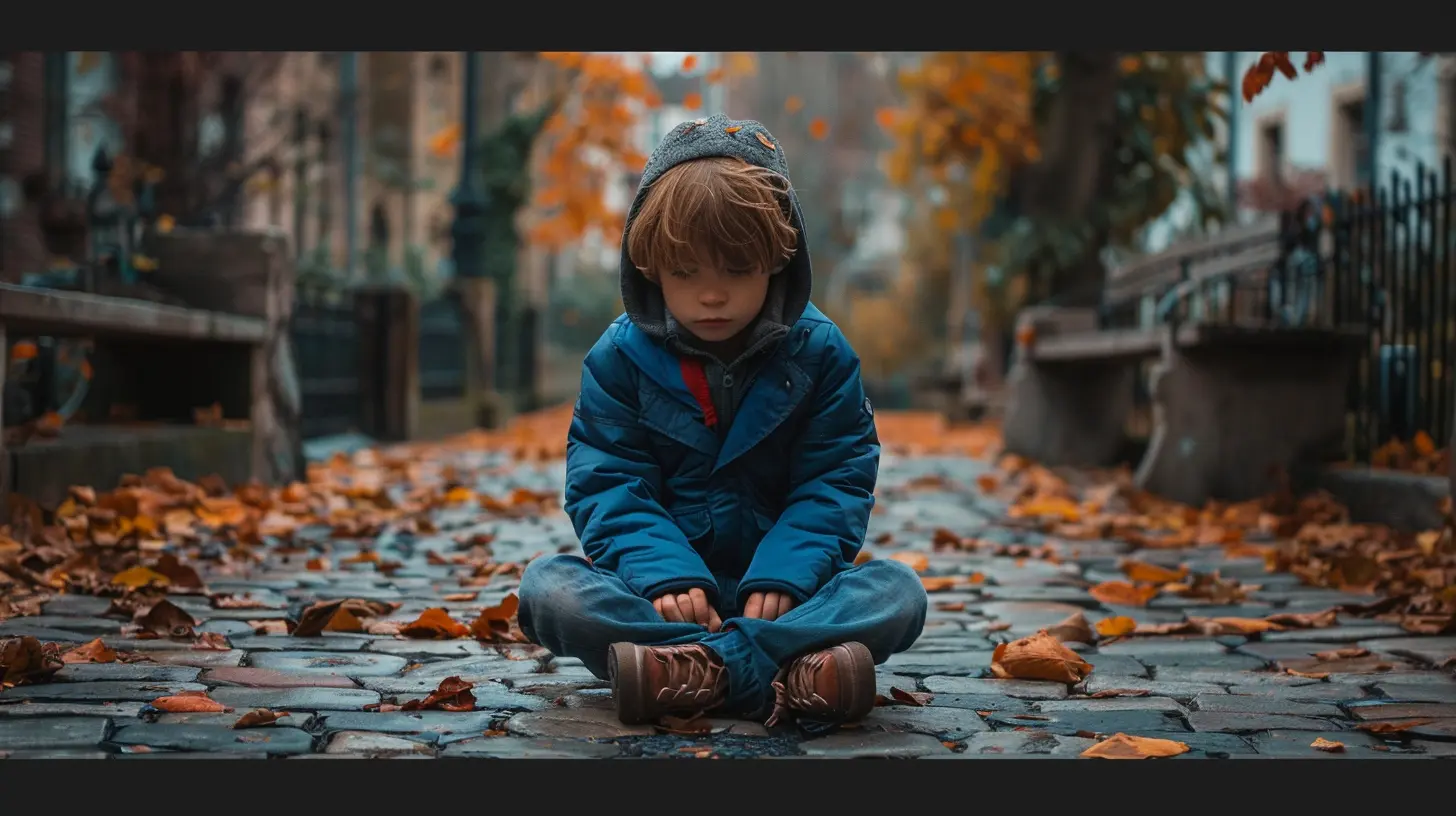
Start With Yourself: Modeling Empathy at Home
Kids are like sponges—they soak up whatever’s around them. And guess what? That includes your behavior, too. So, the first step in teaching empathy is practicing it yourself.Be honest: How do you respond when someone cuts you off in traffic? Or when the cashier takes forever to ring up your groceries? Your little one is always watching, even when you think they’re not.
When you show patience, understanding, and compassion, your child learns these are important qualities to have. Let’s say your child sees you donating food to a shelter or helping a neighbor with their groceries. That simple act of kindness sends a powerful message: We care about others.
And don’t forget to extend empathy toward your child, too. When they’re upset or frustrated, acknowledge their feelings. Instead of saying, “You’ll be fine,” try, “I can see you’re really upset right now. Let’s talk about it.” This builds their emotional vocabulary and helps them feel understood. 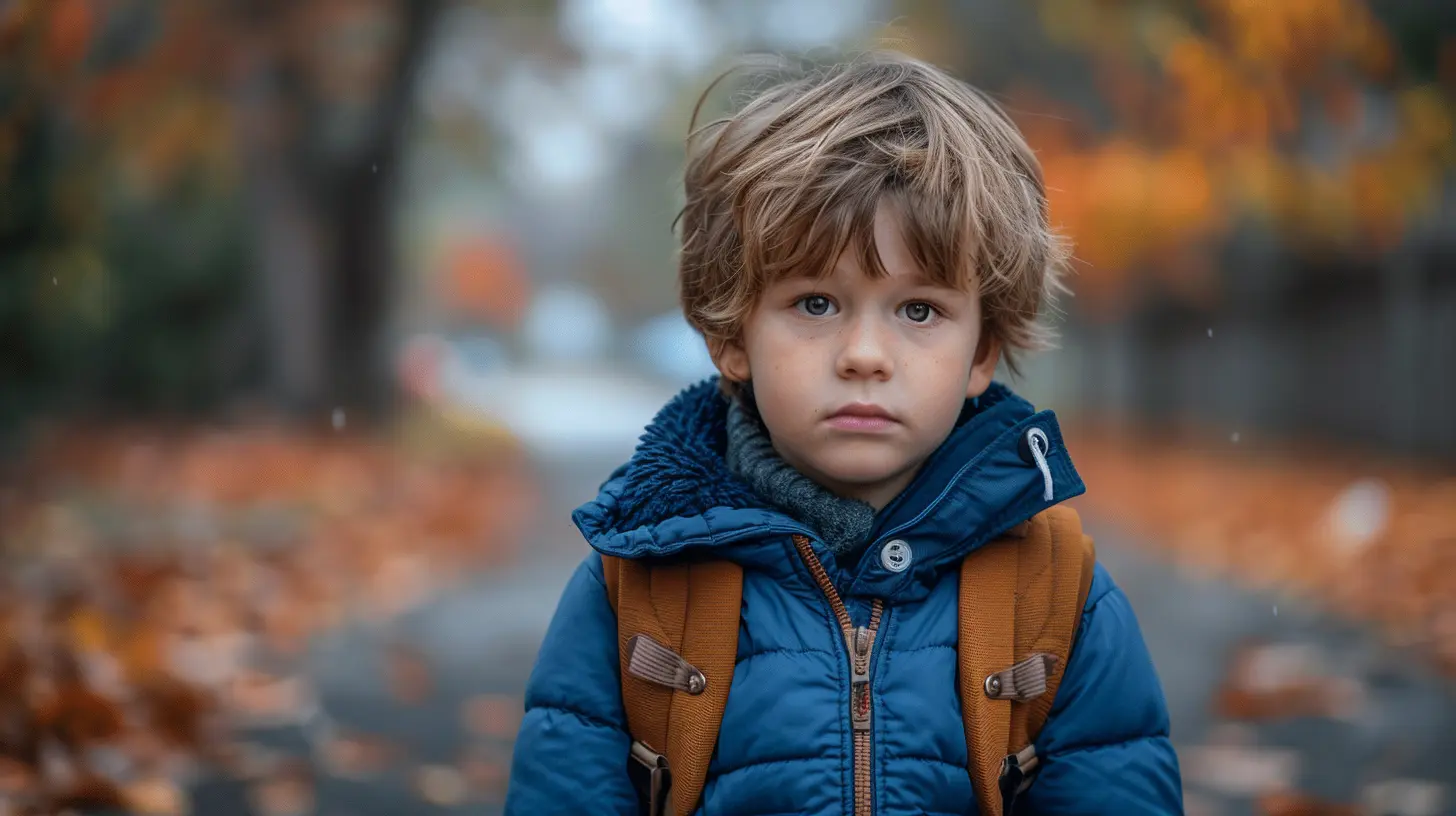
Use Storytelling to Build Understanding
What kid doesn’t love a good story? Stories are an amazing way to teach empathy because they let kids experience different perspectives without leaving the comfort of their own home.Books and movies are packed with characters facing challenges, making mistakes, and learning lessons. When you read or watch something together, pause and ask questions like:
- “How do you think that character feels right now?”
- “What would you do if you were in their shoes?”
- “Why do you think they acted that way?”
For example, if you’re reading The Tale of Peter Rabbit, you might ask, “Why do you think Peter’s mom told him not to go into Mr. McGregor’s garden? How do you think she felt when she found out he didn’t listen?”
These conversations encourage your child to step into someone else’s shoes and think beyond their own perspective. 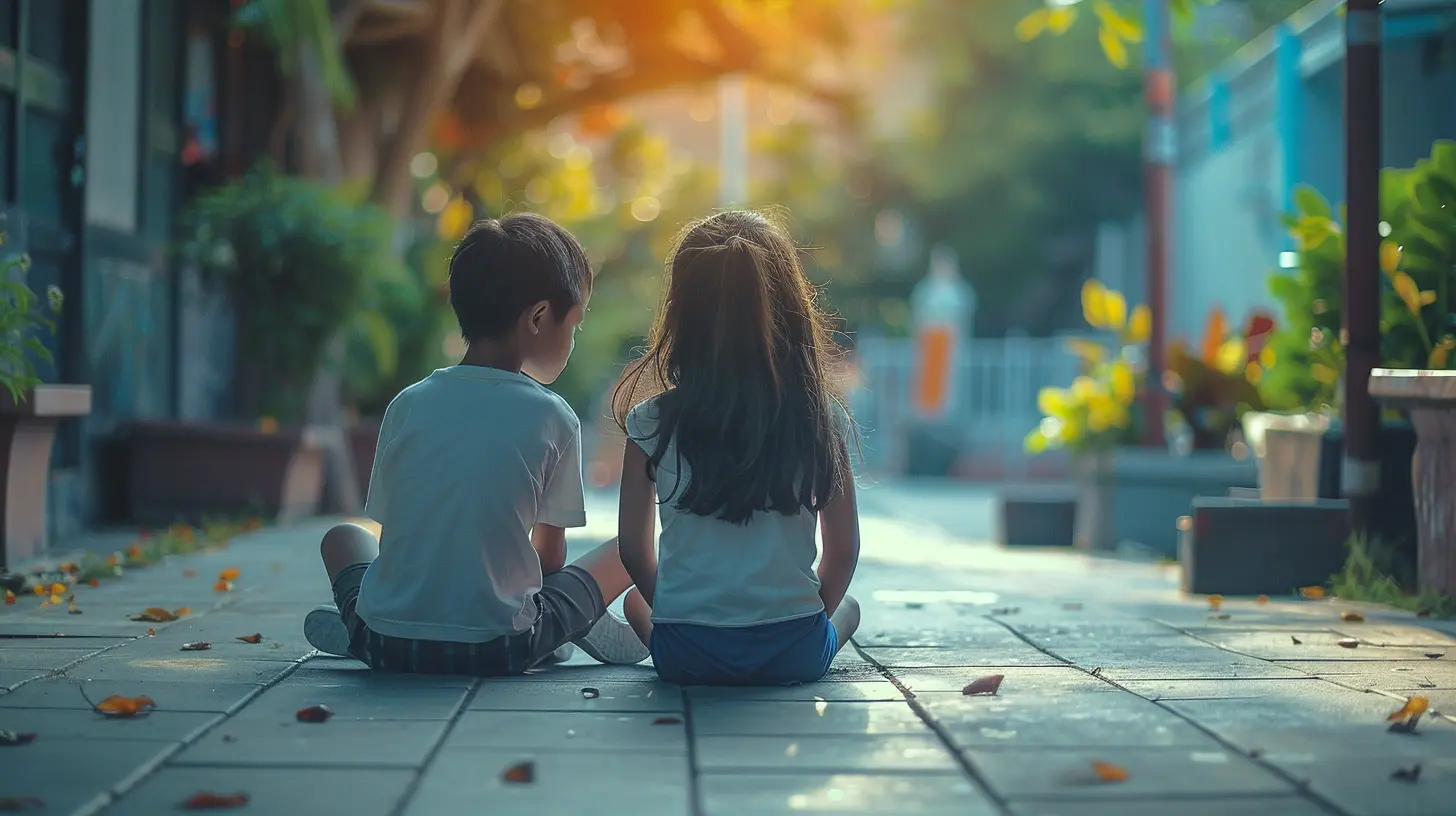
Encourage Emotional Awareness Through Everyday Moments
Empathy starts with understanding emotions—both their own and others’. So, one of the best ways to teach empathy is by helping your child identify and label feelings.Here’s an easy trick to try: When your child is experiencing a strong emotion, name it for them. For instance:
- “You seem really frustrated that your tower fell down.”
- “I can see you’re feeling proud of your drawing!”
This helps your child connect their feelings to words, which is a key step toward recognizing emotions in other people.
You can also look for teachable moments in everyday interactions. If you’re at the park and see another child fall, ask, “How do you think they’re feeling right now? What could we do to help?” Small moments like these make a big impact over time.
Teach the Value of Kindness
Let’s face it, kids don’t always think before they act. But teaching your child the value of kindness can help them pause and consider how their actions impact others.One fun way to do this is with random acts of kindness. Have your child leave a cheerful note for the mail carrier, bake cookies for a neighbor, or donate toys to a local shelter. Afterwards, ask them how they felt doing something kind. Chances are, their answer will be, “It felt good!”
Explain that kindness can create a ripple effect. When we’re kind to others, it often inspires them to pass it on. It’s a simple, powerful way to show your child that small actions can make a big difference.
Role-Playing Scenarios
Role-playing is like empathy boot camp—it helps kids practice putting themselves in someone else’s shoes.Create a few simple scenarios and act them out together. For instance:
- Pretend one of you is a new kid at school who’s feeling nervous. How can the other person help them feel welcome?
- Act out a situation where someone’s feelings are hurt. How can you make it right?
Role-playing not only makes learning fun but also lets your child experiment with different ways to respond in real-life situations.
Talk About Bullying Openly
Let’s be real—bullying is a tough subject. But it’s also one that needs to be discussed honestly.Start by explaining what bullying is and why it’s hurtful. Use clear, age-appropriate language to describe behaviors like teasing, excluding, or being physically aggressive.
Then, talk about why bullying happens. Explain that sometimes kids bully because they’re feeling hurt or insecure themselves. This doesn’t excuse the behavior, but it helps your child understand the bigger picture.
Most importantly, teach your child to stand up for others. Encourage them to be an "upstander"—someone who steps in or gets help when they see bullying happening. Empathy isn’t just about understanding feelings; it’s about taking action to make things better.
Set Clear Expectations
As parents, we set the tone for what’s acceptable behavior. Make it clear from the start that bullying will never be tolerated in your family.Instead of just saying, “Don’t bully,” explain what kindness and respect look like in action. Set expectations for how your child should treat friends, siblings, and classmates. And don’t forget to praise them when they’re being kind or empathetic—it reinforces positive behavior.
Be Patient—Empathy Takes Time
Here’s the thing: Teaching empathy isn’t a one-and-done job. It’s an ongoing process, one that requires patience and persistence.Kids are still learning how to manage their own emotions, let alone understand someone else’s. So don’t be discouraged if it takes a while for the lessons to sink in. Keep modeling, teaching, and encouraging empathy, and you’ll see the fruits of your labor over time.
Remember, Rome wasn’t built in a day—and neither is empathy.
Wrapping It Up
Teaching your child empathy might feel like a daunting task, but it’s one of the most rewarding gifts you can give them. It’s like planting a seed—you may not see instant results, but one day, that seed will grow into a compassionate, thoughtful human being.By modeling empathy, using stories, encouraging emotional awareness, and setting clear expectations, you’re equipping your child with the tools they need to navigate the world with kindness and understanding. And in doing so, you’re helping to create a future where bullying is less prevalent and empathy is the norm.
You’ve got this, parents. One small step at a time is all it takes.
all images in this post were generated using AI tools
Category:
Dealing With BullyingAuthor:

Zelda Gill
Discussion
rate this article
9 comments
Solaria Hurst
Teaching empathy is great, but remember: kids also learn by watching you steal the last cookie!
April 6, 2025 at 5:03 AM

Zelda Gill
Absolutely! Children often model behavior, so it’s crucial to model empathy and integrity in everyday situations, like sharing cookies. Actions speak louder than words!
Nathan Fuller
What a fascinating topic! Empathy seems like such a crucial skill for children to learn early on. I'm curious about specific activities or strategies that parents can use to effectively cultivate empathy at home. How can we make these lessons engaging for our kids?
March 2, 2025 at 4:02 AM

Zelda Gill
Thank you for your interest! Parents can cultivate empathy through activities like role-playing, reading diverse stories, and discussing feelings in different scenarios. Engaging kids in community service or collaborative games can also make learning about empathy fun and impactful.
Ethan Lopez
Teaching empathy today nurtures kindness for tomorrow.
February 19, 2025 at 4:22 AM

Zelda Gill
Absolutely! Teaching empathy not only fosters kindness but also helps build a more compassionate future, reducing the chances of bullying.
Elidi Collins
Empathy starts at home—model kindness daily.
February 18, 2025 at 4:43 AM

Zelda Gill
Absolutely! Modeling kindness at home lays the foundation for empathy in children, equipping them to foster positive relationships and prevent bullying.
Chantal McAllister
This article beautifully highlights the importance of nurturing empathy in our children. Small, consistent actions can make a profound difference in combating bullying and fostering kindness. Thank you for sharing!
February 17, 2025 at 6:01 PM

Zelda Gill
Thank you for your thoughtful comment! I'm glad you found the article valuable in promoting empathy and kindness. Together, we can make a difference!
Mandy Rogers
Great tips for nurturing kindness in our kids!
February 15, 2025 at 5:49 PM

Zelda Gill
Thank you! I'm glad you found the tips helpful for fostering kindness in children.
Hunter Clayton
Great insights! Teaching empathy is such a vital skill for our kids. Small moments of kindness can make a big difference in their understanding. Thanks for sharing!
February 14, 2025 at 5:15 PM

Zelda Gill
Thank you for your kind words! I completely agree—every small act of kindness contributes to a greater understanding of empathy.
Abram Cruz
Thank you for this insightful article! Teaching empathy is such a crucial skill for our children. I appreciate the simple, practical tips you provided that we can implement right away.
February 7, 2025 at 5:21 AM

Zelda Gill
Thank you for your kind words! I’m glad you found the tips helpful in fostering empathy in children. Together, we can make a positive impact!
Peyton Clayton
This article offers valuable insights on fostering empathy in children, which is essential for reducing bullying behavior. By engaging in open conversations, modeling compassionate actions, and encouraging emotional expression, parents can help cultivate a generation of empathetic individuals who understand and respect others' feelings.
February 6, 2025 at 3:39 AM

Zelda Gill
Thank you for your thoughtful comment! I'm glad you found the insights helpful for fostering empathy in children. Together, we can make a positive impact on bullying behavior.
MORE POSTS

Fostering Emotional Resilience in Toddlers

How to Help Children Set Goals and Achieve Them

Building a Project-Based Learning Curriculum for Homeschool

Taking Guilt-Free Breaks: Why It’s Okay to Step Away
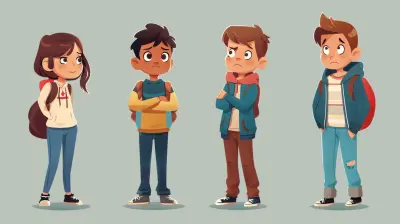
How to Navigate Difficult Conversations with Teachers About Bullying

The Art of Apologizing: Helping Kids Own Their Mistakes
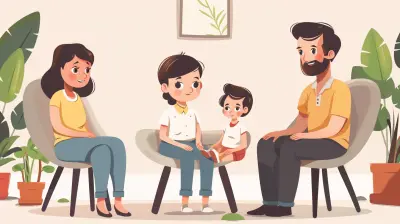
Respectful Parenting: Treating Your Child as an Individual